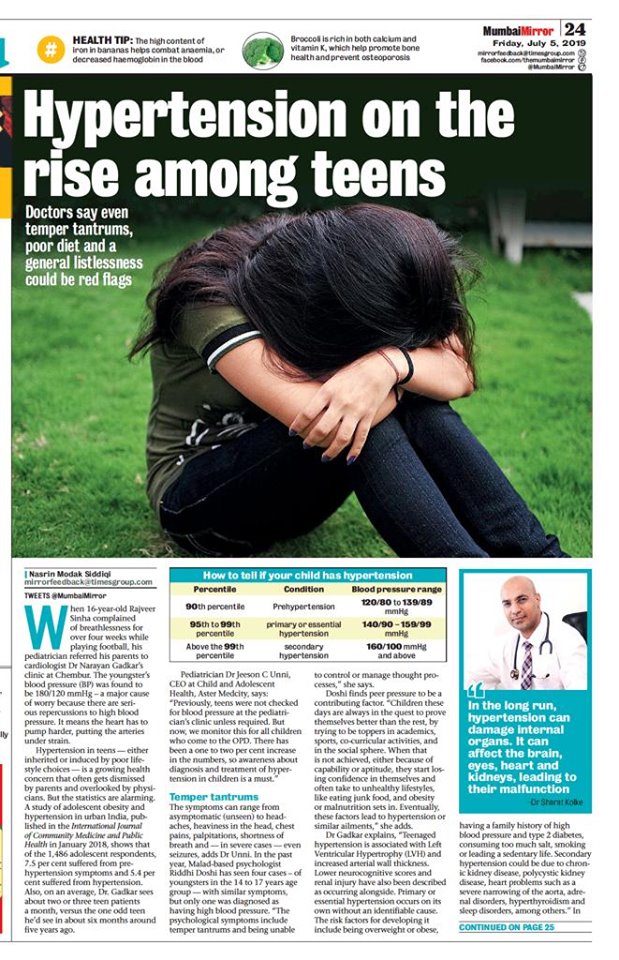BENGALURU: In India, one in four adults over the age of 18 suffers from high blood pressure or hypertension as a result of genetic and underlying disorders, lifestyle choices, and environmental factors. Men are more likely than women to develop hypertension. Chronically high blood pressure is caused by bad eating habits, unhealthy lifestyles, excessive smoking, drinking, cigarette use, lack of exercise, and stress. Patients who are overweight and diabetic are more likely to develop hypertension.
Young people with hypertension are becoming more prevalent, and as a result, more of them are developing chronic kidney illnesses, renal artery stenosis, cardiovascular disease, and other vascular disorders. Constant headaches, palpitations, giddiness, chest pain, shortness of breath, blurred vision, insufficient sleep, and a high salt consumption are a few symptoms that are frequently present. It is important to seek medical help if you encounter any of these symptoms for an extended length of time.
Chronic hypertension may exacerbate blockages and weaken arteries in the heart, which could result in a stroke. Additionally, it might make cognitive decline and kidney illness more likely. As a result, it’s crucial to check your blood pressure at least once every six months. A healthy person should typically have a blood pressure measurement of 120/80 mm Hg, while those who have been diagnosed with hypertension should aim to keep their readings at least at 140/90 mm Hg.
Systolic pressure, which is simply the pressure in the arteries while the heart beats, is the higher measurement, and diastolic pressure, or the pressure recorded between heartbeats, is the lower value. One should keep their legs uncrossed and both feet flat on the ground when taking their blood pressure.
The arm should lie on a table at chest height with the blood pressure cuff snugly wrapped around the skin. A tight blood pressure cuff should be avoided. A 24-hour average reading of 130/80 mm Hg, a daytime average reading of 135/85 mm Hg, and a nocturnal average reading of 120/70 mm Hg are used to diagnose hypertension.

The heart must work even harder to pump blood in a patient with hypertension because the blood’s constant push against the artery walls is high. Primary hypertension develops gradually with age, but secondary hypertension typically affects younger people and is brought on by conditions such as chronic kidney disease, hormone imbalance, thyroid dysfunction, narrowing of the aorta, and overactive thyroid, among others.
ACTIONS TO DECREASE HYPERTENSION
Exercise and weight loss: Limit sugar intake, and fully avoid aerated beverages. Maintain a healthy diet that contains sufficient amounts of proteins, fruits, and green leafy vegetables, as well as exercising for at least 30 minutes every day for five days in a row. The heart is strengthened by exercise as well.
Get enough sleep. Sleep deprivation frequently results in worry and raises the risk of hypertension, which can lead to diabetes, stroke, heart disease, and other conditions.
Avoid stress by finding ways to relax, such as laughing therapy, listening to peaceful music, or taking up a pastime you enjoy, like gardening.
Limit your salt intake since too much salt can cause water retention, which can cause a high flow of blood through the arteries, placing strain on the arteries and making the heart work harder to pump blood.
Alcohol and smoking should be avoided, as should canned and processed meals that are high in oil.


